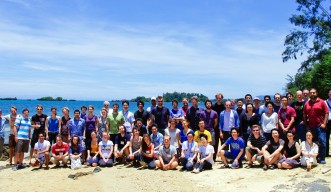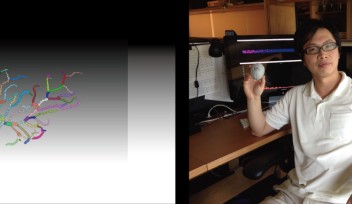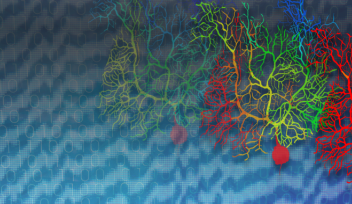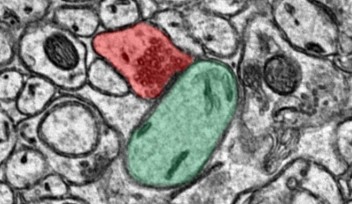Sea, Sand, and Computational Neuroscience
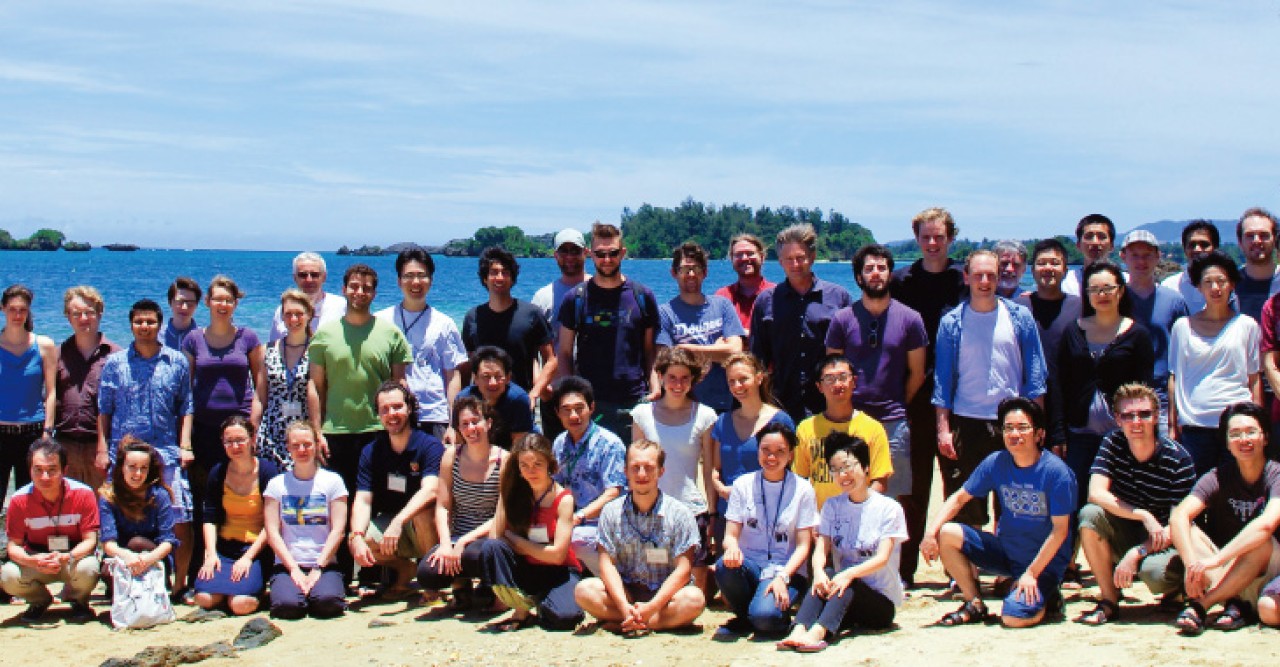
In a university so new that it was only officially inaugurated last year, finding a program that’s already in its ninth year is rare. One such program is the Okinawa Computational Neuroscience Course (OCNC), which, in those nine years, has earned a reputation as one of the best short neuroscience courses in the world, helping to establish OIST as a leader in the field. This year’s three-week course will wrap up on Friday, June 29.
OCNC brings in three types of participants: students, tutors, and lecturers. Students, who are generally graduate students or postdocs, attend lectures in the morning and then use the afternoons to work on individual research projects, with the help of tutors. They then give five-minute presentations on their projects at the end of the course. “Projects are taken very seriously here,” said Nikon Rasumov, a graduate student at the University of Cambridge who is one of this year’s participants. “You’re encouraged to work on them before the course, and to explore something you haven’t had time to explore before.”
Rasumov cited the opportunities for interaction with other participants as another draw of the course. “It brings together people from experimental and theoretical backgrounds, allows exchange between them, and brings them up to speed,” he said. He also welcomes the opportunity to interact with the lecturers, he said, as they include some of the top names in computational neuroscience.
Erik De Schutter, a co-organizer of the workshop and the head of the Computational Neuroscience Unit, says community-building is indeed one of the major aims of the workshop. To that end, students and tutors all stay at OIST’s Seaside House for the duration of the course; the network that forms among them “will probably stay active for the rest of their lives,” he said.
OCNC was started by Neural Computation Unit head Kenji Doya in 2004, and was originally a shorter course that focused on specific topics. In 2006 Prof. De Schutter, who was considering a faculty position at OIST, decided to apply after he attended the OCNC as a lecturer. The course has been similarly helpful for postdoc recruitment at OIST, Prof. De Schutter says.
Today OCNC is co-organized by Profs. De Schutter, Doya, and Jeff Wickens, and the quality of applicants continues to improve every year. Last year 17% of applicants were accepted; this year, it was 15%. “It’s a practical course with good support, good tutors, and over the years the word gets out,” Prof. De Schutter explains.
Specialties
For press enquiries:
Press Inquiry Form










